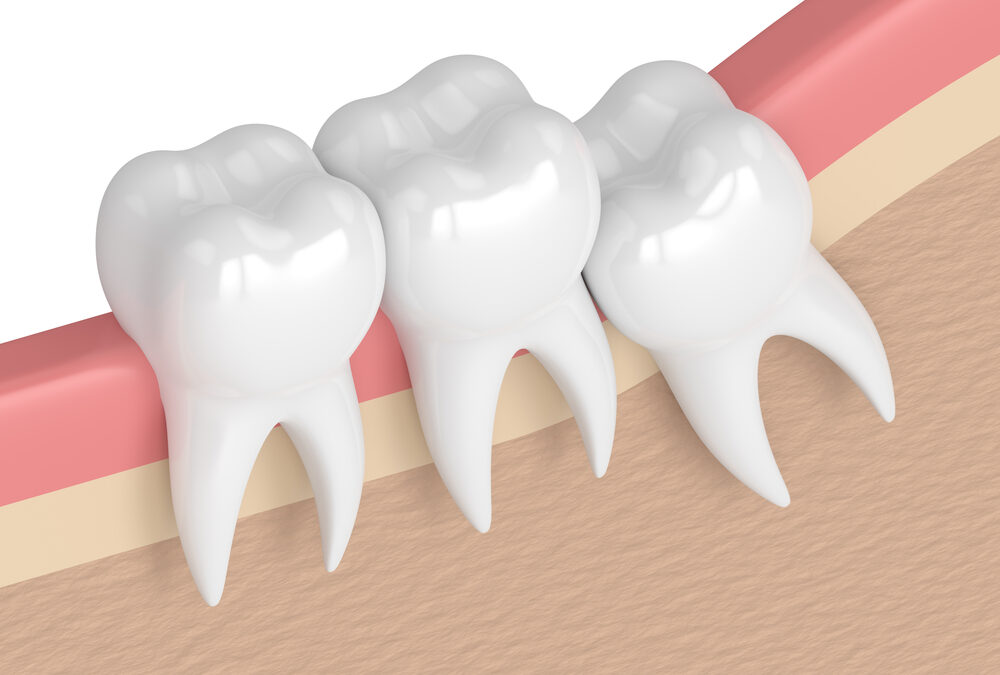Wisdom teeth, also known as third molars, are the last set of teeth to develop in the mouth, typically appearing between the ages of 17 and 25. While they can be useful in some cases, most people experience complications when these molars start to erupt, leading to the need for wisdom tooth removal. Identifying the signs that it’s time to have your wisdom teeth removed can save you from pain, infections, and more serious dental issues down the line. This guide will walk you through the most common warning signs and why early removal is often recommended.
Why Do We Have Wisdom Teeth?
Before diving into the signs of when removal may be necessary, it’s important to understand why wisdom teeth exist. In ancient times, human ancestors relied on these extra molars to chew rougher foods, such as raw plants and meat. As our diets evolved and cooking became more common, the need for such strong teeth diminished. Additionally, human jaw sizes have gradually become smaller, often leaving little room for wisdom teeth to grow in properly. As a result, many people experience problems with wisdom teeth because they do not fit well in modern jaws.
Common Signs You Need Wisdom Tooth Removal
Many people develop wisdom teeth without immediate complications. Many people as well experience relief from pain and discomfort after undergoing wisdom tooth removal, a common dental procedure aimed at preventing future oral health issues. However, when these teeth begin to cause problems, your dentist may recommend removal. Here are the most common signs to watch for:
1. Pain or Discomfort
One of the most obvious indicators that your wisdom teeth may need removal is persistent pain or discomfort at the back of your mouth. This pain can radiate to the surrounding teeth, jaw, or even the ear. The pain may be caused by the teeth pushing against nearby molars or from the pressure they place on the jaw. If you experience recurring or increasing pain, consult your dentist for an evaluation.
2. Swollen or Bleeding Gums
When wisdom teeth start to erupt, they can cause swelling or redness in the surrounding gum tissue. In some cases, the gum tissue may become infected, leading to inflammation known as pericoronitis. This condition can cause swollen, tender gums that may bleed when brushing or flossing. If left untreated, it can escalate into more severe infections, so it’s crucial to address these symptoms early by seeking helpful dental care information from your dentist.
3. Jaw Stiffness or Swelling
As wisdom teeth grow, they can push against other teeth or the surrounding bone structure, leading to jaw stiffness or swelling. You may notice difficulty opening your mouth fully or experience pain when chewing. Swelling in the jaw may also indicate an infection, which can spread if not treated. Jaw discomfort should never be ignored, as it may signal more serious underlying issues related to impacted or partially erupted wisdom teeth.
4. Bad Breath or Unpleasant Taste
Wisdom teeth can be difficult to clean properly due to their location at the back of the mouth. When food particles and bacteria accumulate around the teeth, it can lead to bad breath (halitosis) or an unpleasant taste in the mouth. This buildup of bacteria can also increase the risk of gum disease and tooth decay, further complicating the situation. If you notice a persistent foul taste or smell in your mouth, it may be time to have your wisdom teeth examined.
5. Cysts or Tumors
In rare cases, wisdom teeth can cause the formation of cysts, which are fluid-filled sacs that can develop around an impacted tooth. If left untreated, these cysts can damage surrounding teeth, nerves, and bone tissue. In even rarer instances, tumors may develop, requiring surgical intervention. Regular dental check-ups can help catch these issues early, preventing the need for more extensive surgery later.
Why Early Removal is Often Recommended
While not everyone will experience symptoms right away, many dentists recommend preemptive wisdom tooth removal to avoid potential problems. Even if your wisdom teeth aren’t currently causing pain, there are several reasons why early removal may be the best course of action:
1. Prevent Future Complications: Removing wisdom teeth before they cause pain or infection can prevent damage to adjacent teeth, bone loss, and other complications.
2. Simpler Procedure for Younger Patients: The removal process is often easier for younger patients because their roots are less developed, and recovery tends to be quicker. As you age, wisdom tooth removal can become more complicated, with a higher risk of complications.
3. Reduce Risk of Misalignment: In some cases, wisdom teeth can push against other teeth, causing crowding and misalignment. This may undo the results of orthodontic treatment, such as braces, which can be costly to correct.
What to Expect During Wisdom Tooth Removal
If your dentist recommends wisdom tooth removal, it’s natural to feel apprehensive. However, the procedure is common and generally safe when performed by an experienced dental professional. Here’s what you can expect:
1. Consultation and X-rays: Your dentist will first take X-rays to assess the position of your wisdom teeth and determine the best approach for removal.
2. Anesthesia Options: Most wisdom tooth removals are performed under local anesthesia, though sedation or general anesthesia may be used for more complex cases.
3. Extraction Procedure: The dentist will make an incision in the gum to access the tooth and may need to break it into smaller pieces to remove it fully.
4. Recovery: After the procedure, you may experience some swelling, bleeding, and discomfort for a few days. Follow your dentist’s post-operative instructions for a smooth recovery, and avoid strenuous activity or hard foods during this time.
Recognizing the signs that your wisdom teeth need removal can help you avoid pain, infections, and more serious dental problems. If you’re experiencing symptoms like pain, swelling, or bad breath, it’s important to consult your dentist and get helpful dental care information. Wisdom tooth removal, while intimidating for some, is a routine procedure that can greatly improve your oral health and prevent future complications. If you suspect your wisdom teeth are causing trouble, don’t hesitate to seek professional advice.













